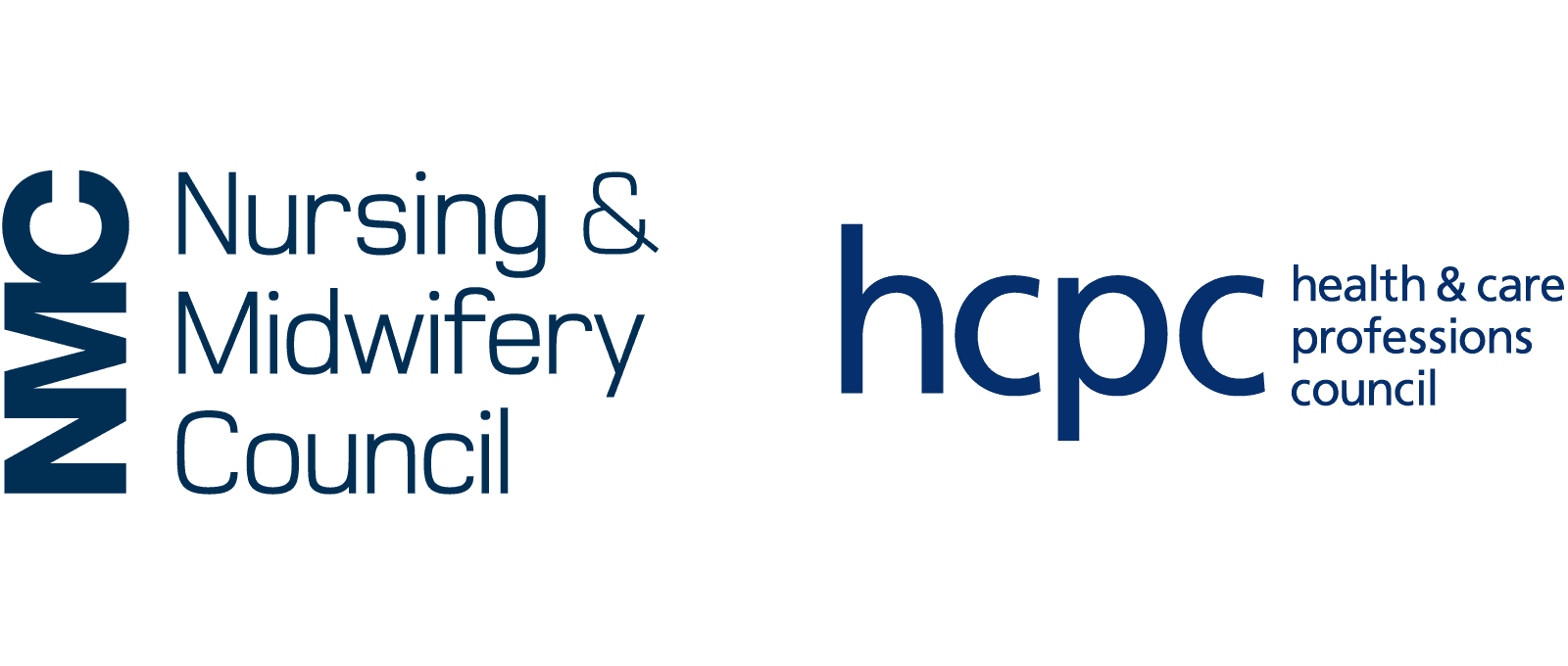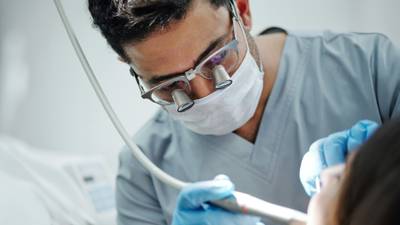Take your next career step with MSc Advanced Clinical Practice.
Study with our exceptional multidisciplinary team and learn to manage the care journey of very complex patients.
Whatever area of health care you’re ready to advance in, this flexible, blended-learning degree will support you at every step.
You’ll learn through a mixture of:
- online
- work-based, and
- on-campus teaching, including simulation with patient partners.
Flexible delivery
This ACP degree is specially designed to fit around your existing career in health care, with part-time hours and a customisable pace.
Four pillars framework
Our curriculum is rooted in the Four Pillars of Advanced Clinical Practice framework. You’ll build your expertise to an advanced level across all pillars: clinical practice; leadership; facilitating learning; and evidence, research and development.
Tailored to you
Choose from a diverse range of courses, with options to balance research and clinical content, to tailor your advanced clinical practitioner training to your career aims.
In partnership with the NHS
Learn in a collaborative environment, with a degree delivered in partnership with our NHS colleagues. Senior clinicians, clinical academics, and staff from nursing and the allied health professions helped develop this degree, and they’ll be involved throughout your teaching.

Become an independent/supplementary prescriber
This degree includes courses to help you earn your V300 award and register as an independent/supplementary prescriber.
These non-medical prescribing courses are accredited by the Nursing and Midwifery Council (NMC) and the Health and Care Professions Council (HCPC).
Who can join this MSc in Advanced Clinical Practice?
If you’re a nurse, physiotherapist, paramedic or other healthcare practitioner working in an advanced or advancing role, this degree offers you a flexible way to develop your knowledge and clinical skills.
This degree is for qualified healthcare practitioners who:
- live within easy travel distance of Aberdeen, and
- work in clinical practice, in any healthcare discipline, in hospital or community settings.
Choose the University of Aberdeen for MSc Advanced Clinical Practice

2nd in Scotland for Medicine
Join a university ranked 2nd in Scotland and 6th in the UK for Medicine (Guardian University Guide 2026).

Over 525 years of excellence
Graduate from the fifth-oldest university in the English-speaking world, founded in 1495.

NHS and alumni discounts
NHS staff get 10% off this online degree. University of Aberdeen alumni get 20% off.
What you’ll study
You can apply to study for a:
- Postgraduate Certificate (60 credits)
- Postgraduate Diploma (120 credits)
- Masters (180 credits), or
- start with one of the short courses that make up this degree (15 or 30 credits).
Typically, students enrol for the PgCert first, then continue through to the PgDip and MSc, subject to personal development goals.
How you’ll study
Blended learning
Advanced Clinical Practice is delivered flexibly, via blended learning.
This means you’ll have courses that are:
- fully online
- fully on campus
- a mixture of online and on campus, and
- work-based.
Online teaching
Online teaching is delivered through MyAberdeen, our online Virtual Learning Environment (VLE). Take a look around MyAberdeen.
You can access MyAberdeen on computer, smartphone and laptop, 24 hours a day. You’ll find a range of resources available, including:
- online lectures, seminars, tutorials and workshops
- videos, podcasts and audio clips
- reading materials
- discussion boards with colleagues and tutors
- online access to our award-winning Sir Duncan Rice Library.
On-campus teaching
Your on-campus teaching takes place in the Suttie Centre at our Foresterhill Health Campus in Aberdeen.
Your on-campus learning will include:
- lectures, tutorials, and seminars
- simulation, including sessions with patient partners
- interprofessional sessions
- small group work
- experiential learning in Clinical Practice with experienced practitioners.
The Suttie Centre is a purpose-built facility designed to support your learning in a safe, simulated clinical environment.
Foresterhill is one of the largest clinical complexes in Europe. It’s home to one of the leading medical schools in the UK, a large teaching hospital, maternity and children’s hospitals, and the Rowett Institute. Find out more about our Health Campus.
Work-based learning
Hands-on demonstration and clinical skills teaching will also take place in your own area of practice.
Your tutors
You’ll learn from leading academics, researchers, and health professionals from our Institute of Applied Health Sciences (IAHS), as well as NHS staff, clinicians and researchers.
Your tutors include:

Helen Gray
Helen is a Lecturer who leads our MSc in Advanced Clinical Practice. A dual registered nurse, she specialises in critical care nursing and practice education.
Helen has worked as a bedside nurse, team leader and educator in the UK, Canada and USA. She’s been training NHS advancing practitioners for over 10 years.
View Helen’s profile
Dr Jonathan Whitfield
Jonathan is a Medical Consultant for NHS Grampian and an Honorary Senior Lecturer. His background is as a Physician specialising in acute care.

Dr Daniel Bennett
Daniel is an Honorary Senior Lecturer at the University of Aberdeen and is the Undergraduate Lead for Psychiatry.
He works as a Consultant Forensic Psychiatrist with NHS Grampian and has been an Associate Postgraduate Dean with NHS Education for Scotland since September 2017.
View Daniel’s profileWe’ll use a variety of methods to assess your understanding, progress, and performance throughout this degree, including:
- online assignments
- written examinations
- objective structured clinical examinations (OSCEs), and
- development of a portfolio, including clinical practice assessments.
Hours for online courses
If you plan to study part-time, we recommend you take no more than 30 credits per term. Students typically take one or two 15-credit short courses per term.
15 credits
- Around 150 hours of study and assessment time to complete.
- You’ll study 10 – 15 hours per week per term.
30 credits
- Around 300 hours of study and assessment time to complete.
- You’ll study 20 – 30 hours per week per term.
This is an indicative guide to the time required for a typical student at this level to achieve the learning outcomes.
You can largely set your own study hours each week to cover the materials. MyAberdeen is available 24/7, so you can log in and study when it suits you.
Online activities at fixed times
There may be some activities scheduled at fixed times, such as meetings with your tutor or assessments with deadlines. But otherwise, you can access and work through each online course at your convenience.
On-campus hours
For courses that feature on-campus teaching, the hours you’ll spend on campus will vary by course.
The introductory Fundamentals of Clinical Method and Decision Making course is the only heavily on-campus course in this degree. This course spans two terms. You’ll spend one full-time day per week on campus, typically a Wednesday, for both terms.
Individual course tiles above will indicate the number of hours required to be on campus for any courses that feature on-campus learning.
Hours for 30-credit projects and case studies
A 30-credit project or case study is around 300 hours of study time. That’s around 20 – 30 hours per week per term.
You’ll dedicate a full term to your project or case study.
Hours for 60-credit projects
A 60-credit project is around 600 hours of study time.
This is around one term of full-time study.
You can dedicate a full term to your project and work on it full-time. Or you can complete it part-time, spreading the hours you dedicate to it over two terms.
When you study with us, you can expect a first-class support structure so that you’re never alone in your studies.
But learning online does mean you have to motivate yourself and manage your own time.
Your most important commitment will be time – the time to work through, reflect on and understand your teaching materials.
Before you start a course that involves a high degree of independent study, we recommend looking at the time you will be able to devote to your studies each week:
- Be realistic
- Create a weekly schedule as a guide
If you have any questions about studying online, get in touch with our friendly team. We’re here to help.
Our first-class support structure will ensure that you aren’t alone in your studies. You’ll have contact with your coordinator via email, MyAberdeen and Microsoft Teams. You can use social media and discussion boards to chat with your fellow students too.
We provide a wide range of services to support you in your studies and beyond:
- Careers and Employability Service
- Disability support
- IT support
- Library support
- Student Support Service – help with finances, wellbeing, and non-academic issues
- Student Learning Service – study skills support and advice
- Aberdeen University Students’ Association (AUSA) – run by students for students
- Toolkit – clever apps and free training that can make your study life easier
Wherever you are in the world, you’ll feel part of our very special Aberdeen learning community.
We’re a member of the Access scheme run by the Society of College, National and University Libraries (SCONUL).
Access study spaces, books and journals in your area
The SCONUL Access scheme allows you, as a University of Aberdeen student, to access books and resources at university libraries across the UK and Ireland, or visit them for a quiet place to study.
You’ll be able to use study spaces, books and journals at over 150 university libraries which belong to the scheme.
Your support team
Our friendly team are here to answer any queries you have about your studies.

Helen Gray
Helen is the degree coordinator. She’ll be on hand to answer any questions about degree content before you start and to help you throughout your studies.

Get in touch
The online education team is here to answer any questions you have right now about this qualification, or about studying online.
Ask us a questionWhere this will take you
Careers
This degree will prepare you to work as an Advanced Clinical Practitioner (ACP).
You’ll graduate as a highly autonomous practitioner, equipped to make impactful contributions to healthcare delivery and patient outcomes.
In-demand skills for Advanced Clinical Practice
You’ll develop in-demand expertise harmonious with the four pillars of advanced practice, as well as high-level critical-reasoning and decision-making skills.
Teamwork is at the core of today’s healthcare environment, and this ACP degree ensures you’ll have the skills you need to be an essential part of multidisciplinary teams.
Future career opportunities
This degree prepares you for further career advancement, leading you towards future roles including Senior ACP and Advanced Practice Consultant.
What is an Advanced Clinical Practioner?
An Advanced Clinical Practitioner is defined as an experienced and highly educated registered healthcare professional who manages the complete clinical care for their patient.
As clinical leaders, they have the freedom and authority to act and accept responsibility and accountability for their actions.
The level of practice of an ACP is characterised by high-level autonomous decision making, including:
- assessment, diagnosis, and treatment, including prescribing for complex problems
- decision making using high-level expert knowledge and skills
- the ability to refer, admit, and discharge within appropriate clinical areas, as well as
- working as part of multidisciplinary teams.

Lifelong career support
Our career support doesn’t stop when you graduate.
You have access to our free careers service while you study, and beyond.
- 1:1 appointments
- CV checks
- Interview prep
- Job opportunities
Fees and funding
Tuition fees typically increase each year. A 3% fee rise has been confirmed for academic years 2026/27, 2027/28 and 2028/29.
Our indicative costs include a 3% fee rise each year.
Pay as you go
This is a pay-as-you-go qualification.
You do not have to pay the full tuition fee upfront.
You can spread the cost and pay as you go, term by term.
How it works
- You decide how many credits to study for each term.
- At the start of term, you pay only for the credits you’re taking that term.
- This gives you control over your costs and workload for each term of your qualification.

Your personalised cost breakdown
Use the degree scheduler to plan your studies and see your cost breakdown, term by term.
On-campus course costs
Your degree fee covers the cost of tuition for your on-campus teaching.
However, it does not cover the cost of any travel, accommodation or visa you might require in order to join us on campus. You will have to pay for your own travel, accommodation and visa costs.
Learning resources
Access to all the essential books and resources you need are included in your tuition fee. They’ll be made available to you online and you do not have to buy your own copies.
Printing
You may wish to set aside a small budget for printing, depending on how you like to work.
There are several ways you may be able to get help funding your studies:
- Employer sponsorship – we accept full and partial fee payments from sponsors
- Student loans
- Scholarships – search our funding database for scholarships
Find out more about funding options.
Student card
All our students are entitled to a University of Aberdeen student card. This gives you access to a range of student discounts around the city and online.
20% Alumni discount
You’re entitled to 20% off our postgraduate taught degrees and short courses if you have a degree from the University of Aberdeen. View Alumni discount details.
10% NHS discount
NHS staff receive 10% off online postgraduate degrees and short courses offered by our School of Medicine, Medical Sciences and Nutrition; our School of Psychology; and our ILM leadership courses. View NHS discount details.
How discounts work
Discounts are applied during your application process. Only one discount can be used per application. If you are eligible for more than one discount, we will apply the largest discount for you.
Entry requirements
PgCert, PgDip, MSc
To apply for this programme, you must be:
- a registered nurse or allied health professional
- working in or towards an advanced clinical role in healthcare.
On-campus requirements
This blended-learning degree features study sessions delivered on campus in Aberdeen, and you will be required to attend these sessions in person.
You apply through our online Applicant Portal. It allows you to upload relevant qualifications and documents.
There is no application fee for our online programmes.
What you need to apply
- Degree transcript
- Personal statement
- Degree certificate
- CV / Resume
Apply now
Start with our step-by-step guide. It explains degree transcripts, what to write in your personal statement and how to use our Applicant Portal.
You can apply to start in either September or January.
Apply as early as you can. This is so we have time to review your application and get a decision to you. We also want to ensure you have time to enrol before teaching starts.
September 2026 intake
For our September 2026 intake, the application deadline is 6 September 2026.
You will need to accept your offer and provide any outstanding documents to meet the conditions of your offer by 13 September 2026.
Teaching starts on 21 September 2026.
January 2027 intake
Teaching starts on 25 January 2027.
Application deadlines will be announced in due course.
To view your online course materials, you’ll need access to:
A computer (PC, laptop or Mac) with an up-to-date operating system
Most teaching materials are smartphone- and tablet-friendly. But we recommend a proper laptop or desktop for completing assignments comfortably.
Reliable internet access
We recommend:
- a wired connection
- a minimum download speed of 2 Mbps so you can take part fully in live sessions.
Speakers or headphones
- We recommend a headset with built-in microphone and earphones if you’re likely to study in an environment with background noise.
- A webcam is optional, but you may like to use one from some interactive sessions.
Software
We’ll give you access to Office365 applications. This means you can use online versions of Microsoft Word, Excel, PowerPoint and OneDrive and install these programs on up to five personal devices.
If your course requires specialist software, we’ll provide you with access to this and a licence that lasts throughout your studies.
See our detailed IT requirements for more information.
Try our degree scheduler

Choose your courses
See all the courses that are part of this degree and choose what you want to study.

Manage your study schedule
Control the pace and cost of your degree. Decide how much you want to study each term.

Save to your wishlist
Save your schedule to your wishlist so you can view and edit anytime.
Postgraduate Certificate
60 credits
£4,180
This indicative cost is based on 60 credits of study over two terms, starting in September 2026.
Postgraduate Diploma
120 credits
£8,840
This indicative cost is based on 120 credits of study over 20 months, starting in September 2026.
Master of Science
180 credits
£13,260
This indicative cost is based on 180 credits of study over 32 months, starting in September 2026.
Apply for this programme
- Start month
- September or January
- Indicative cost
- £4,180
This indicative cost is based on 60 credits of study over two terms, starting in September 2026.
Apply via our Applicant Portal







